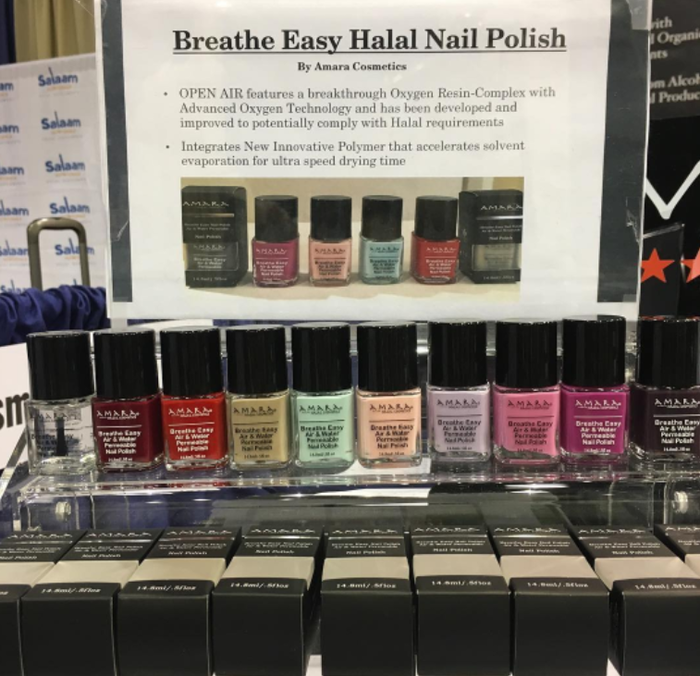There is no doubt that the beauty and cosmetics industry has gone through major developments in the last few decades, including the introduction of organic and vegan makeup products, in addition to many other trends. However, the last few years have seen increasing popularity in a new category; that is "halal" beauty.
Vegan and Organic makeup brands take pride in the fact that they don't use any animal-related ingredients and that they are completely animal-cruelty-free, making them popular options among echo-aware consumers. Yet, the halal beauty industry has a different priority and a different consumer market.
If you looked up the word "halal makeup" online a few years ago, you will probably find people debating makeup products that are compatible with Islamic practices, such as Wudhu - the act of washing oneself before prayer.
Long debates have been started for many years about whether certain items of makeup do allow water to reach and clean all body parts so a Muslim can perform the prayer, particularly breathable nail polish and mascara.

However, the conversation has gotten more and more specific in recent years as new makeup brands, many of which were established by Muslims, started introducing halal beauty products, including various makeup items, shampoos, conditioners, bath gels, perfumes, lotions, etc.
Halal makeup vs Vegan makeup: What are the differences?
According to several of these beauty brands, halal makeup products are quite similar to vegan ones, in the sense that they don't include any animal-derived ingredients, nor allow for animal-cruelty practices in the manufacturing, packaging, or distribution processes.
Yet, they go several extra miles beyond vegan make-up, being produced without the use of materials that should not be consumed by Muslims, such as harmful chemicals (such as Parabens and Phthalates), blood (regardless of its source), Gluten, and Alcohol-related ingredients, besides being ethically and environment-friendly sourced.
Moreover, beauty products that qualify for the "halal certification" provided by several Islamic institutions worldwide are obliged to publicly reveal ALL of their ingredients, so they can be cleared for consumption by practicing Muslims.
According to a 2019 study by Grand View Research, Asia comes in the first place in terms of consuming halal makeup products, while the MENA region comes in the second rank.
While MENA countries make up around 10.85% of the global market, European countries and North America make up around 9.97%.
According to research conducted by Allied Market Research, the growing Muslim population in western countries in addition to millions of Muslim consumers who couldn't access Muslim-friendly brands if not for e-commerce are the main reason the "halal beauty" industry is seeing a boost in sales.
The halal beauty industry is now valued at $30.6 billion in 2020 and is cast to grow by more than 15% by 2031, reaching around $144.8 billion.
California-based Amara Halal Cosmetics and Canada-based Tuesday in Love are among the most popular brands that obtained the halal certification.
Meanwhile, the vegan beauty industry is expected to grow by 6.3% by 2030, reaching $26.16 billion by 2030. Michigan-based The Lip Bar and California-based Tower28Beauty are some of the leading names in the Vegan makeup business.
Countries that consume vegan make up the most have been the US, Japan, Canada, Europe, and China.
Despite the growing success of vegan and halal beauty industries, questions remain over whether or not businesses leading these trends are filling already existing gaps, catering to vegan or Muslim consumers, or if they are business endeavors that create new need-based markets for their products to survive in a highly-competitive industry.








